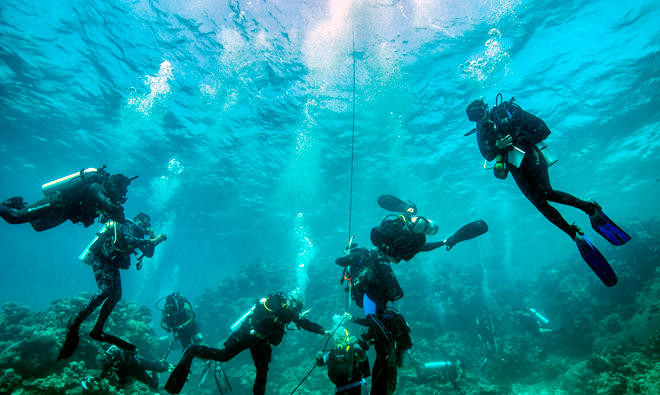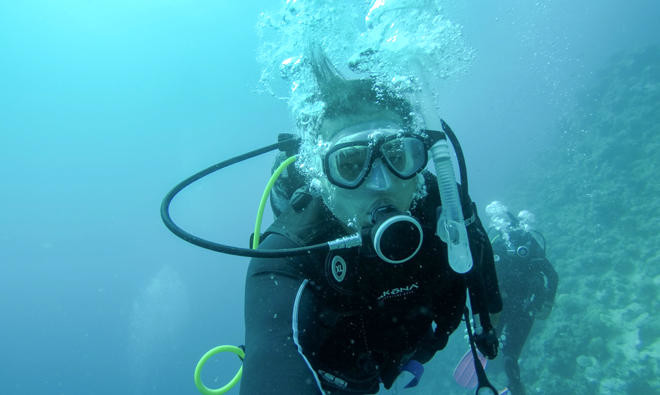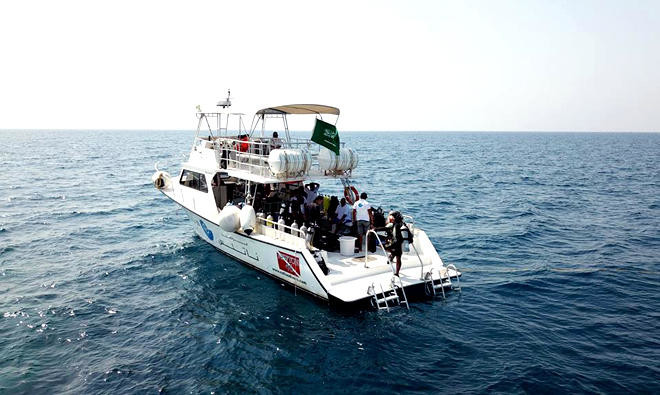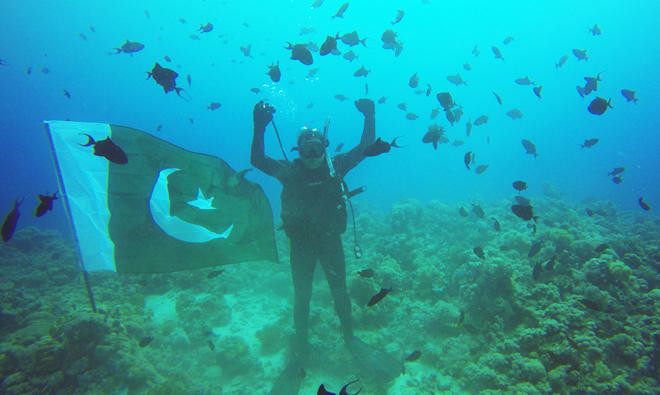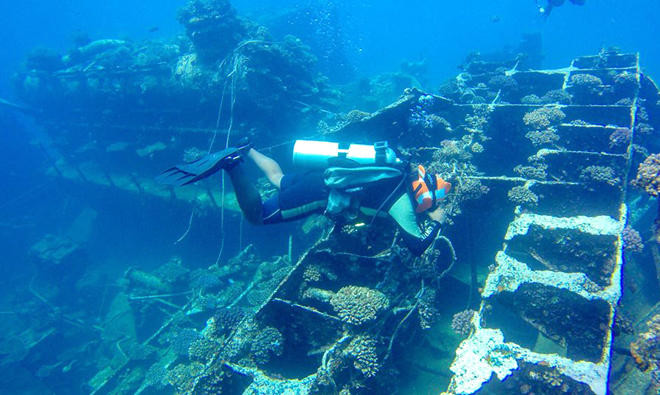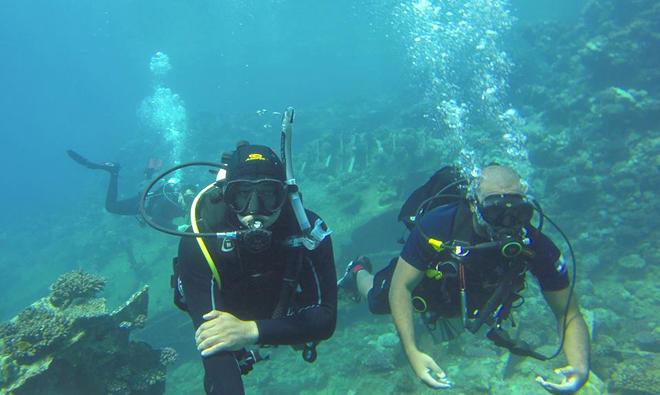JEDDAH: With its constant temperature, clear water and excellent visibility, the Red Sea is one of the world’s best spots for diving.
Many enthusiasts come to Saudi Arabia to experience scuba diving. Mohammed Yaheya Ishfaq, a 36-year-old Pakistani, began diving in 2005 and became fascinated with the Red Sea.
Ishfaq, who has a master’s degree in architect photography, loved the region’s underwater world. “There are many 19th and 20th-century shipwrecks that divers come from all over the world to visit, and beautiful coral,” he said. “We need to show tourists the secret beauty under the sea in the Kingdom.”
The Red Sea is rich in marine life and has no shortage of mystery. Navigation errors in its shallow waters, severe weather conditions and equipment failures mean it is littered with wrecks that have been lying undisturbed for decades, attracting marine creatures that give them new life.
“Shipwreck diving is one the most popular activities in Jeddah and people are keen to explore these mangled remains,” Ishfaq said.
In 2015, Saudi and German archaeologists discovered two ancient shipwrecks along the coast in a joint project between the Saudi Commission for Tourism and National Heritage and the Philipps University of Marburg in Germany.
The Roman ship they found is the oldest archaeologically documented shipwreck on the Saudi Arabian coast. The remains of another ship dating back to the early Islamic period were also discovered in the area between Rabigh in the north and Al-Shoaibah in the south.
The Red Sea is beautiful to explore. Many private beach resorts, such as La plage, offer diving training for youngsters. Some also arrange deep-sea boat trips.
Ishfaq said people should respect the shipwrecks and avoid removing anything from them. “My advice is to never touch the wrecks since many are covered with fire sponges, hydroids, shellfish and broken edges that can cause injuries.”
Divers are allowed to descend a maximum of 40 meters for an hour and 15 minutes. “It depends on the weather and the depth; the deeper you go, the colder it becomes,” Ishfaq said.
“For me, diving is one of the most beautiful things in the world. People who don’t know how to swim can also dive with trainers . So forget any fear and get to see the underwater world at least once in your lifetime.”
The Kingdom has many establishments, such as Professional Zone and Natlus Divers, that offer scuba-diving facilities with training, instructors and licenses.
Hazem Al-Silimani, a Saudi scuba-diving instructor who has free dived (without equipment) in the Red Sea for a record-breaking six minutes, told Arab News: “We are enhancing our expertise to get more involvement from youngsters who want to learn diving. Our training starts in the swimming pool, where people practice holding their breath and learn how to control their mind to stay underwater.”
For scuba diving, people should not exceed their comfort zone or exceed their skill level, he said. They should respect the capacity of their equipment, and ensure that it is in good condition and working properly.
Mohammed Al-Nahdi, the owner of the Professional Zone diving club, said: “Our aim is to socialize people with different nationalities living in Saudi Arabia so they can explore the beauty of Red Sea. Scuba diving is a sport that helps people to make friends, to socialize more, because no one can dive alone in the sea. They have to be in a group.
“We have signed contracts with schools, colleges, and universities in the Kingdom, such as King Faisal School in Yanbu and King Faisal Training Academy. As authorized diving trainers, our aim is to encourage students to start diving from a beach, then go boat diving, which gives more confidence to youngsters.”
There are several other diving resorts and marinas around Jeddah, such as Ahlam Resort, Dive Village, Durrat Al-Arous, Nakheel/Ghulam Beach Resort, the Red Sea Resort, Al-Ahlam Marina, and Al-Nakheel Village.


